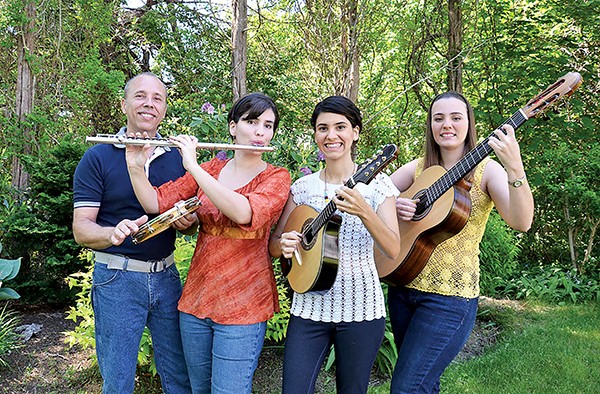Choro enthusiast Amy Burcham describes Brazil’s national music with evangelistic zeal. “It’s one of the cultural crown jewels of this hemisphere,” she rhapsodizes. “It grew from chamber music and represents the musical interchanges of the civil servants, trained musicians, newly freed slaves, and European immigrants in the late 1800s in Rio de Janeiro, when waltzes, polkas, and tangos were all the rage.” The word “choro” means “to cry,” but the music is a joyous, swirling mix of gypsy jazz, African rhythms, and European harmonies played on guitars, mandolins, flutes, and various Brazilian folk instruments.

To help her spread the sonic gospel, Burcham has co-founded West Tennessee Choro, a not-for-profit organization with three primary goals: to promote, present, and proliferate choro music in the Memphis area. She especially hopes that local musicians will be inspired to pick up their instruments and experiment with choro. “A big focus of our efforts is going to be in appealing to young adults and also older amateur musicians who maybe put their instruments under the bed as they got into their working lives,” she says. Although the compositions can be intricate and tend to encourage improvisation, Burcham believes choro music is accessible to musicians playing at every skill level.
Presenting live concerts is another big part of West Tennessee Choro’s mission. “You’ve really got to see it live,” Burcham says. This week, Choro das 3, a popular Brazilian family band, make their third trip to Memphis to play at the Buckman Performing Arts Center.